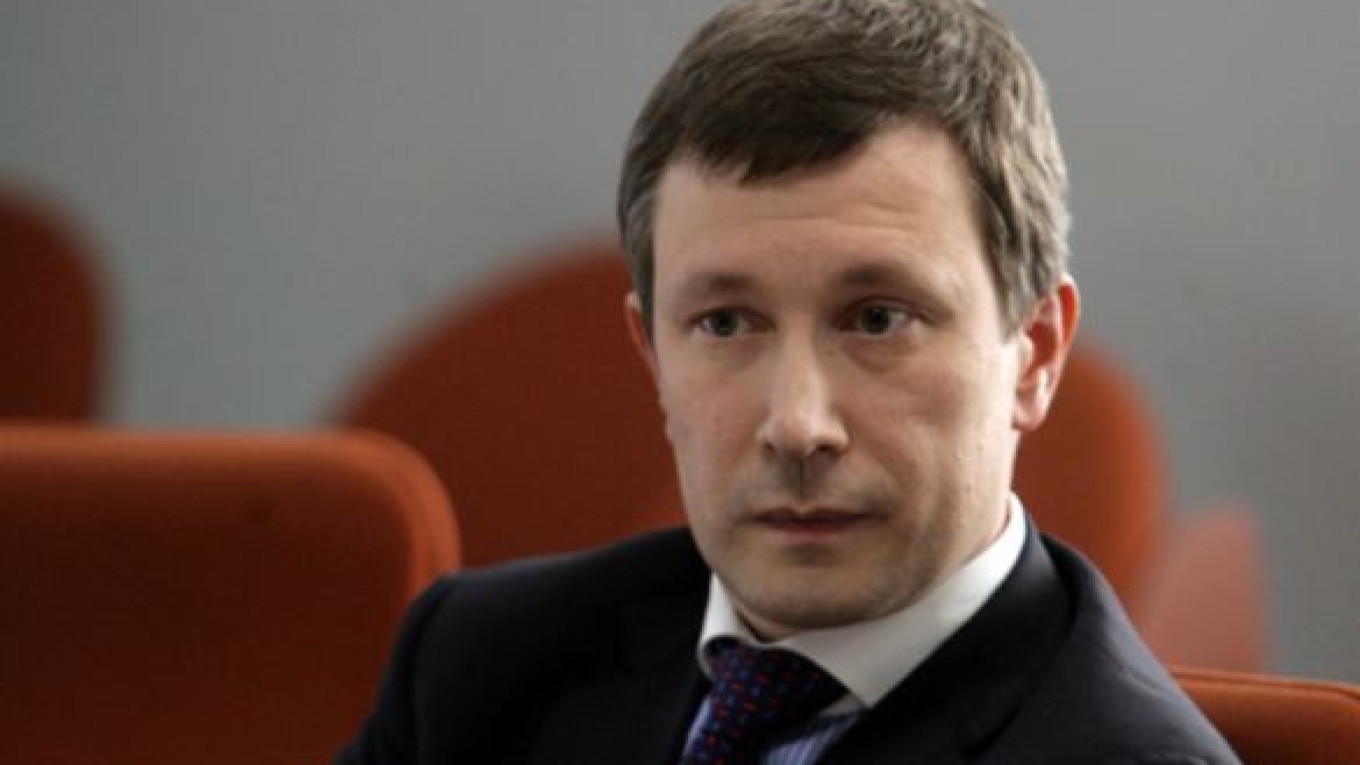In a stinging rebuke to the authorities and United Russia, election observers said Monday that weekend municipal elections in a provincial town had been too tarnished by fraud to be considered legitimate.
The Ryazan region town of Kasimov had turned into a key battleground for the political opposition ahead of Sunday's vote for the municipal legislature, and activists had hoped to ensure a fair election in this corner of the country following disputed national elections in December and March.
According to preliminary results, United Russia won nearly 50 percent of Sunday's vote, matching its local result in State Duma elections in December, and secured 13 seats in the 20-seat legislature.
But monitors said they witnessed numerous offenses, including ballot stuffing, at the town's 22 polling stations.
"There were nearly two serious violations at every station. … The number of violations per voter was unprecedented," said Sofia Ivanova, regional coordinator of the election watchdog Golos.
Pro-United Russia ballot stuffers were caught in the act in at least two polling stations, and observers discovered stacks of votes for the ruling party at several others, she said by telephone.
Konstantin Ivanov, an activist with the Union of Russian Observers, said the fraud was as bad as it was in December's Duma elections, if not worse, and he speculated that 20 percent of United Russia's official tally was fake.
"They weren't elections. I don't know what the devil they were," he said by telephone.
A secret poll commissioned by the government shortly before the election put support for United Russia at about 29 percent, said Yabloko's Anatoly Kivva, who ran in Sunday's election.
Observers have filed complaints with the regional elections commission, which has yet to officially recognize the election results, and Kivva promised that Yabloko would do everything it could to see ballot stuffers brought to justice.
But Alexei Chesnakov, a senior United Russia official whose appearance on the ballot sparked accusations of carpetbagging, said the number of violations was "insignificant" and accused "so-called 'independent' observers" of aggressive, unacceptable behavior, Interfax reported.
Snap elections in this provincial town of 33,000 gained unexpected attention after Chesnakov appeared on the party's list, a move that the opposition suspected would catapult him to a seat in the Federation Council. Only elected officials can become senators.
Spurred on by opposition leader Alexei Navalny, dozens of activists from Moscow and Ryazan traveled to Kasimov in recent weeks to distribute anti-United Russia leaflets and urge residents to vote.
It's unclear whether the campaign had any significant impact on turnout, which was about 36 percent, nearly double the figure for mayoral elections in Omsk and Krasnoyarsk earlier this summer.
About 150 observers from Golos, Citizen Observer, and the Union of Russian Observers joined monitors from the major political parties on election day, said Citizen Observer representative Dina Burkhanshina.
"Some polling stations banned videocameras; others put illegal limitations on observers. There were also procedural violations in absentee voting," Burkhanshina said by telephone.
About seven polling stations saw criminal violations — including ballot stuffing — she said, enough to prompt Citizen Observer to recommend that the election results be annulled.
United Russia took 49.6 percent of the vote — the equivalent of five seats — according to preliminary results, followed by the Communist Party with 29 percent, the Liberal Democratic Party with 11 percent and the liberal Yabloko party, which won less than 6 percent of votes.
United Russia also won eight of 10 single-mandate districts, according to results posted on the regional elections committee's website.
"The election results adequately reflect the will of the voters. I consider them a success for the party and for me as a direct participant," Chesnakov, 41, told Interfax.
Monitors expressed disappointment that their relatively large numbers had failed to stop widespread fraud upfront, but they said they would continue their work in future elections.
"Our job as observers is to shine a light on dirty elections," said Ivanov, of the Union of Russian Observers. "If we do our jobs, maybe somebody higher up will do something to clean the elections up. If not, we'll keep raising the temperature on them."
Kasimov's legislature dissolved itself in May, saying new political realities like the inauguration of President Vladimir Putin and election reforms to simplify the registration of political parties meant it had to change with the times.
The local elections committee banned A Just Russia from participating in the vote, citing problems with paperwork submitted by the party.
A Message from The Moscow Times:
Dear readers,
We are facing unprecedented challenges. Russia's Prosecutor General's Office has designated The Moscow Times as an "undesirable" organization, criminalizing our work and putting our staff at risk of prosecution. This follows our earlier unjust labeling as a "foreign agent."
These actions are direct attempts to silence independent journalism in Russia. The authorities claim our work "discredits the decisions of the Russian leadership." We see things differently: we strive to provide accurate, unbiased reporting on Russia.
We, the journalists of The Moscow Times, refuse to be silenced. But to continue our work, we need your help.
Your support, no matter how small, makes a world of difference. If you can, please support us monthly starting from just $2. It's quick to set up, and every contribution makes a significant impact.
By supporting The Moscow Times, you're defending open, independent journalism in the face of repression. Thank you for standing with us.
Remind me later.


